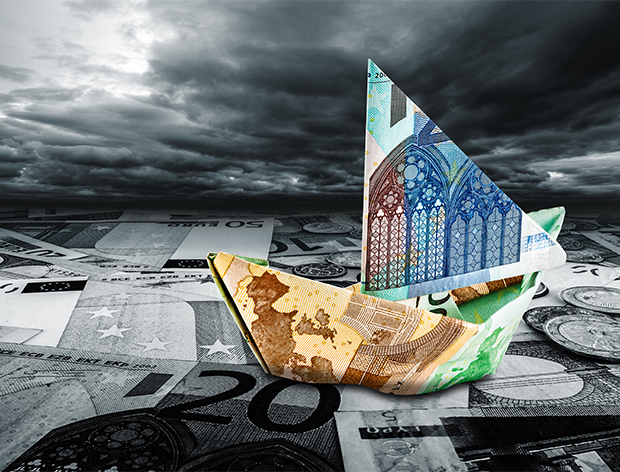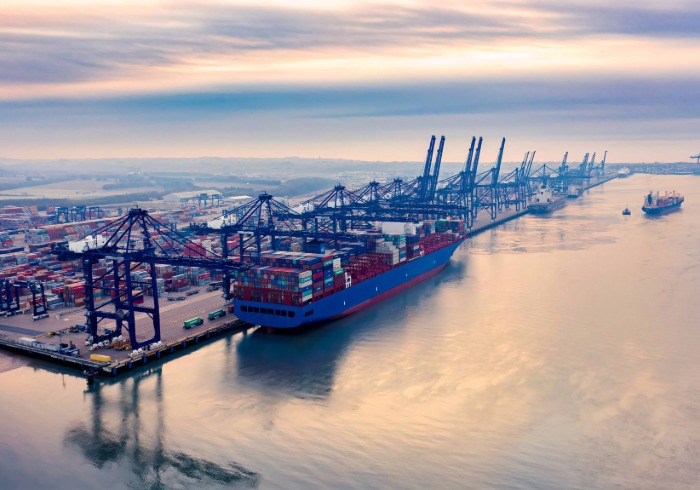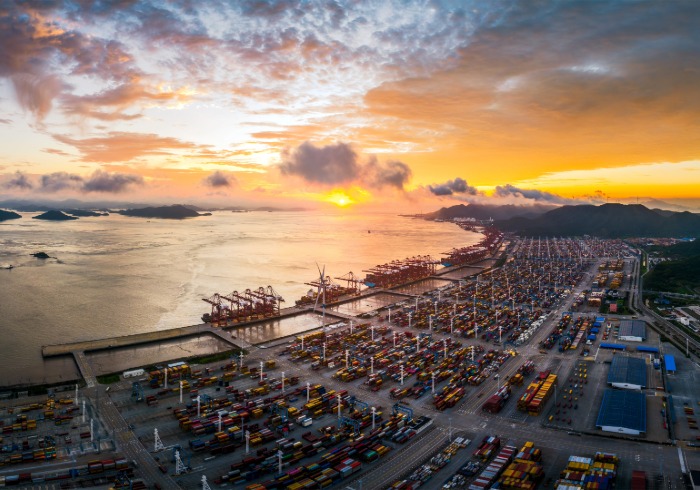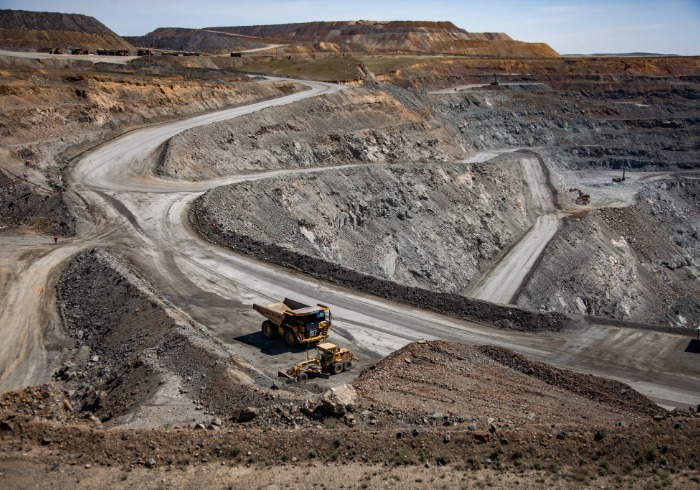UK Export Finance (UKEF) says it carries out rigorous and ongoing due diligence on all transactions it supports, after anti-corruption investigators warned of “multiple red flags” in its activities in Sub-Saharan Africa.
The UK’s export credit agency (ECA), which provides government-backed insurance for export transactions as well as direct lending facilities, was handed a major funding boost this year as Britain looks to boost trade with non-EU markets.
But Spotlight on Corruption, a UK-focused campaign group, says stress-testing of the ECA’s latest anti-bribery and corruption procedures suggests it is “taking on extraordinarily high risk” across much of its current portfolio.
A detailed report published this week says that of the 11 recent UKEF-backed transactions in Sub-Saharan Africa that the group reviewed, three posed “exceptionally high” risks in terms of corruption or bribery. They involved trade with Angola, Ghana and Uganda and carried a total value of over £270mn.
The report adds that in the majority of those 11 cases, companies benefiting from UKEF-backed transactions did not appear to have a significant UK presence. Many showed little economic activity, were registered at service addresses or were only established recently.
“While we did not find any instances of corruption, we found serious due diligence red flags that raise concerns about how UKEF is managing the risks involved in supporting such projects,” the report says.
The report also says the agency’s support for oil and gas projects in the Middle East presents further risks, not least after “several of UKEF’s regular clients” were named in a UK Serious Fraud Office investigation that opened in 2016, following a major bribery scandal involving Monaco-based oil service provider Unaoil.
Red flags
The first of the report’s three case studies relates to a 2018 £68mn UK-backed loan to support the upgrade of two power substations in Luanda, Angola, carried out by Scotland-based infrastructure firm IQA Group.
Spotlight on Corruption says the transaction was singled out because IQA Group is directly controlled by Elecnor, a Spanish construction and engineering giant that has faced “various allegations of corruption” in the recent past.
Elecnor has previously been charged with paying bribes worth nearly €3mn to win a tramway project in Algeria and was accused of making suspicious payments during the management of a desalination plant in the same country.
In 2019 it was fined €20mn by competition regulators for its role in a railway materials cartel, and in January this year was the subject of a new Spanish court case involving another subsidiary, Deimos Space.
There is no suggestion Elecnor’s involvement in the Angolan project is unlawful, but rather it is identified by the report as a potential risk factor for UKEF consideration. Elecnor did not respond when contacted by GTR.
A further risk factor in this loan is the involvement of Angola’s Ministry of Energy and Water (MINEA), which was the recipient of the loan and oversaw the project. The ministry was accused by a US energy company of attempted bribery in a 2017 court case, while it emerged in November last year that current MINEA head João Baptista Borges had been implicated in an ongoing bribery investigation by French authorities.
“Providing a direct loan for a foreign ministry subject to multiple corruption allegations in order to buy services from a company whose controlling parent company is subject to investigation for corruption raises multiple red flags and real questions about UKEF’s risk appetite,” the report says.
In the Ghanaian case, Spotlight on Corruption says it has concerns over the due diligence carried out by UKEF on companies’ ultimate beneficial owners.
It centres on a £17.6mn Deutsche Bank loan in February 2019, which supported the construction of a 120-bed hospital. The borrower, Ellipse Projects UK, is a subsidiary of Spanish infrastructure group Eurofinsa.
The report says Eurofinsa was controlled by businessman Mauricio Toledano until December last year, at which point its ownership was transferred to Fondinfra – a newly formed UK company with no declared beneficial owner or internet presence.
In addition, Eurofinsa and Toledano had been investigated previously by Spanish authorities for payments involving members of Angola’s ruling Dos Santos family.
The report says those findings “should all be major red flags for UKEF”, and warns there are other examples of UKEF-backed transactions involving companies with no disclosed beneficial owner.
The third transaction involved a UKEF direct loan of €219mn for the redevelopment of an industrial park in Kampala, Uganda, close to the shores of Lake Victoria. UKEF’s contribution, announced in June this year, accounts for 87% of the project’s total cost, with the rest financed by a loan of €30mn from Standard Chartered.
Spotlight on Corruption says one of the companies involved, Dott Services, is understood to be closely connected to General Salim Saleh, the brother of President Yoweri Museveni.
Saleh’s link to Dott Services formed an important part of a 2016 enquiry into corruption and fraud within the Uganda National Roads Authority, though was later quashed following a judicial review.
In this case, the report says providing support “for a project where the local joint venture partner is widely regarded to be linked to a relative of the President should act as a major red flag”.
No evidence of corruption was found in any of those three cases, and none of the companies involved are accused of wrongdoing. Deutsche Bank and Standard Chartered also declined to comment.
Rigorous due diligence
UKEF has been quick to dismiss criticisms of its due diligence practices, pointing out that one of its roles is to support transactions where the commercial sector is unable to do so.
“UKEF’s mission is to ensure that no viable UK export fails for lack of finance or insurance from the private sector,” a spokesperson tells GTR.
“It undertakes rigorous due diligence including checks against financial crime, bribery and corruption, prior to any support being provided.”
In addition, that due diligence continues once a transaction has already been agreed. If suspicions or red flags are identified, they are escalated to the agency’s compliance division for further enquiries – though UKEF has no statutory investigative or law enforcement powers of its own.
In the case of companies that appear to have minimal UK presence, UKEF says new subsidiaries are often set up as a means of obtaining financing but ultimately in order to support the export of UK goods.
The British Exporters Association (BExA), an industry body representing UK firms selling goods overseas, echoes the need for high standards in anti-bribery and corruption but acknowledges firms will often be doing business in challenging markets.
“Many of the great opportunities for boosting UK exports lie within countries which are classed as high-risk,” a spokesperson tells GTR. “Giving an increased focus to private sector transactions, in addition to sovereign transactions, is key to not only drive exports but to increase transparency.”
UKEF also defends itself from earlier claims that it was slow to report potential corruption at aviation giant Airbus, which paid out a mammoth US$4bn penalty to regulators in France, the UK and US at the start of this year.
The Spotlight on Corruption report acknowledges the “significant” role played by UKEF in triggering the UK leg of that investigation, but questions why it took more than a year to report its suspicions after first raising issues with Airbus.
UKEF says it can refer cases of suspicious activity to the Serious Fraud Office or National Crime Agency, but that unlike commercial financial institutions there is not necessarily a legal requirement to do so.







